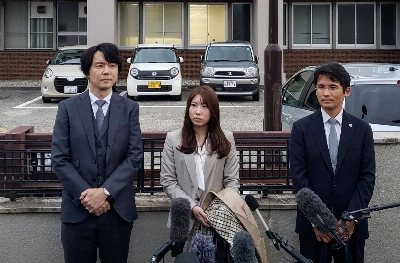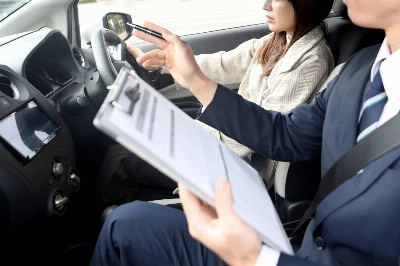The Tokyo District Court on Monday ruled that measures used by Fuchu Prison authorities in Tokyo to restrain a prisoner were within legal bounds, according to the inmate's lawyer.
The prisoner, who is identified only as Kobayashi, claims to have suffered ill-treatment at the prison, including being put into a protection cell as punishment for talking back to a guard. He was seeking 6 million yen in compensation.
Because he was handcuffed in the cell, he was unable to feed or relieve himself properly, and was thus forced to eat like a dog, said Yuichi Kaido, the prisoner's lawyer and secretary general of the Center of Prisoners' Rights Japan.
The prisoner said he was so tightly restrained by metal and leather handcuffs that he suffered internal bleeding and numbed toes as a result.
In Monday's ruling, the court said the guard's actions -- speaking in a threatening manner and pulling Kobayashi out of the cell after he talked back -- were within the limits of prison rules designed to maintain order.
Kaido said the use of handcuffs runs counter to the International Covenant on Civil and Political Rights, which Japan has yet to ratify.
The court also said there was not enough evidence to link the prisoner's wounds with the handcuffs, adding that the covenant is not recognized as international common law in Japan. It thus said the use of handcuffs would not immediately be recognized as a violation of law.
The plaintiff plans to appeal the ruling. "It is very difficult to prove cases of abuses in prison in Japan due to the secrecy of its prisons," said Mark Allison, an Amnesty International member investigating human rights issues in Japanese prisons.
He said he would like to see a neutral organization investigate activities inside the prisons.


















With your current subscription plan you can comment on stories. However, before writing your first comment, please create a display name in the Profile section of your subscriber account page.